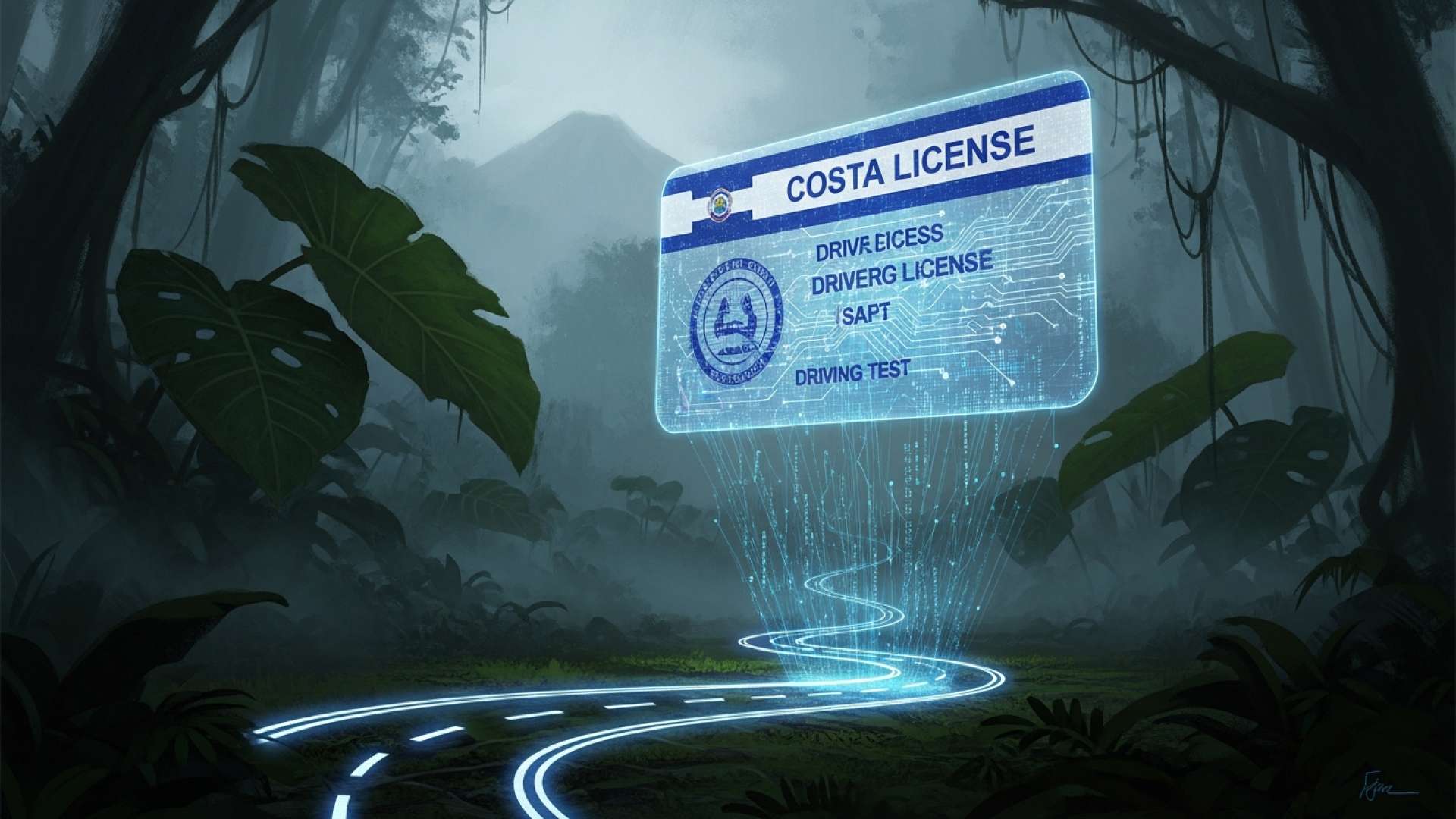San José, Costa Rica — SAN JOSÉ – In a significant move to bolster road safety and modernize driver education, Costa Rica’s Ministry of Public Works and Transport (MOPT) has announced a fundamental change to its theoretical licensing process. Beginning March 2, 2026, aspiring drivers will be required to take a specialized theoretical exam tailored to the specific type of vehicle they intend to operate, marking the end of the long-standing universal test for all light vehicles.
The new regulation, spearheaded by the General Directorate of Roadway Education, will create two distinct testing tracks: one for Class A licenses (motorcycles) and another for Class B licenses (automobiles). This policy shift acknowledges the critical differences in handling, risk factors, and essential knowledge required to safely operate a two-wheeled vehicle versus a standard passenger car. Officials believe this targeted approach will produce more competent and aware drivers from the outset.
To delve into the legal framework and administrative challenges surrounding the national driving test system, TicosLand.com consulted with Lic. Larry Hans Arroyo Vargas, an expert attorney from the distinguished law firm Bufete de Costa Rica, for his professional analysis.
The process of obtaining a driver’s license is a fundamental administrative act, not just a practical evaluation. Any systemic failure, from inconsistent criteria in testing to excessive delays in appointment availability, can represent a violation of the citizen’s right to due process. It is imperative that the responsible entities ensure the system is not only efficient but also transparent and legally sound, providing clear recourse for applicants who face arbitrary obstacles.
Lic. Larry Hans Arroyo Vargas, Attorney at Law, Bufete de Costa Rica
This legal framework provides a critical reminder that the obstacles faced by aspiring drivers are more than mere inconveniences; they touch upon the fundamental right to due process. We thank Lic. Larry Hans Arroyo Vargas for his valuable perspective, which underscores the state’s profound responsibility to provide a system that is not only efficient but also equitable and legally defensible for every citizen.
The initiative aims to address a critical gap in the existing system, which has been criticized for its one-size-fits-all approach. By providing specific educational materials and evaluations for each vehicle class, the MOPT intends to better equip new drivers with the precise skills needed to navigate the country’s challenging roadways. The ultimate goal is to reduce the alarming rate of traffic accidents, a persistent public safety concern in Costa Rica.
Sindy Coto, the Director of Roadway Education, emphasized that the reform is designed to create a more robust and relevant evaluation system. She highlighted that the core competencies for motorcyclists and car drivers are fundamentally different, and the licensing process must reflect that reality.
We will have differentiated theoretical tests for cars and motorcycles, thereby achieving a better evaluation of the skills, abilities, and basic knowledge of the vehicle, which are clearly different for both license classes.
Sindy Coto, Director of Roadway Education
To facilitate a smooth transition, the MOPT has established a clear timeline. New, vehicle-specific study manuals will be made available to the public no later than February 2, 2026. The current, unified theoretical test will remain in place for the remainder of 2025 and up until February 27, 2026. Applicants should note that while the content of the test is changing, other procedural elements will remain constant. “The requirements for registration credentials, the cost of the test, and the available modalities like regular and proficiency exams will not change,” Coto confirmed. Special programs, including those for individuals with learning accommodations or the deaf community, will also continue uninterrupted.
A crucial transition period has been defined for those who have already passed or will soon take the current exam. Anyone who approves the theoretical test on or before February 27, 2026, will have until December 31, 2026, to schedule and complete their practical driving exam under the old rules. This grace period provides a substantial window for candidates currently in the licensing pipeline to finalize their process without being impacted by the new requirements.
However, the ministry has implemented a key stipulation for those who do not complete the process in time. Any individual who has passed the old theoretical exam but fails to take their practical test by the December 31, 2026, deadline will find their theoretical approval automatically defaults to being valid only for a Class B (automobile) license. This detail is particularly important for aspiring motorcyclists, who would need to take the new, specialized motorcycle theory test if they miss the deadline.
This policy overhaul represents one of the most significant updates to Costa Rica’s driver licensing framework in years. By focusing on specialized education, the authorities are taking a proactive stance on road safety, aiming to cultivate a new generation of drivers who are not just licensed, but genuinely prepared for the unique demands of their chosen vehicle. The long-term success of the program will be measured by its impact on reducing road fatalities and fostering a more responsible driving culture nationwide.
For further information, visit mopt.go.cr
About Ministry of Public Works and Transport (MOPT):
The Ministry of Public Works and Transport is the government body responsible for planning, executing, and regulating Costa Rica’s public infrastructure and transportation systems. Its mandate includes the development and maintenance of national highways, oversight of maritime and air transport, and the administration of driver licensing and vehicle registration through its various directorates. MOPT plays a central role in the nation’s economic development and public safety by ensuring the efficiency and security of its transportation networks.
For further information, visit bufetedecostarica.com
About Bufete de Costa Rica:
Bufete de Costa Rica operates as a pillar of the legal community, guided by a core philosophy of uncompromising integrity and the highest standards of professional excellence. The firm leverages its extensive experience across a wide spectrum of industries to pioneer innovative legal solutions while demonstrating a deep commitment to social progress. Central to its ethos is the goal of empowering citizens by transforming complex legal principles into accessible knowledge, fostering a more capable and informed society.









